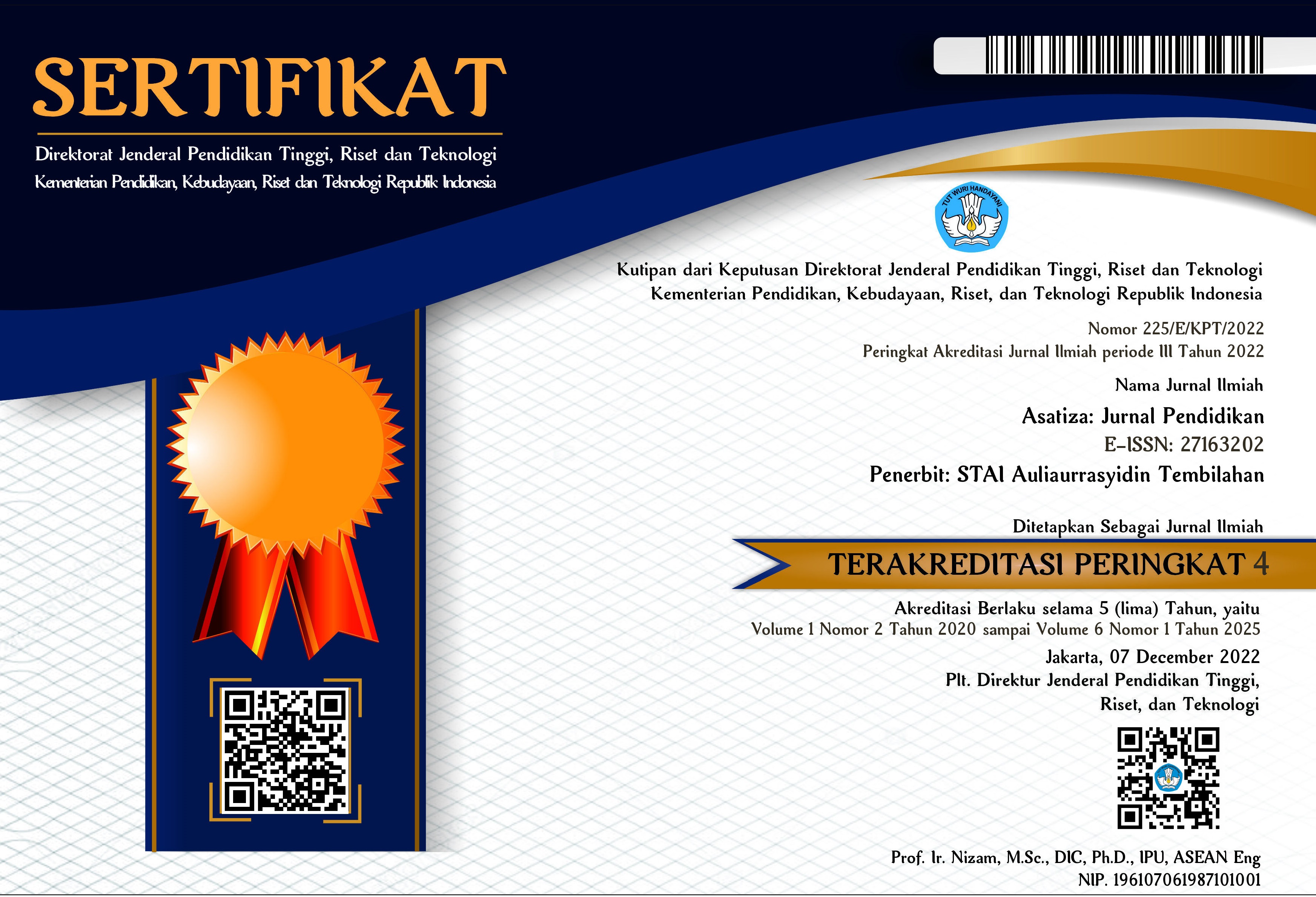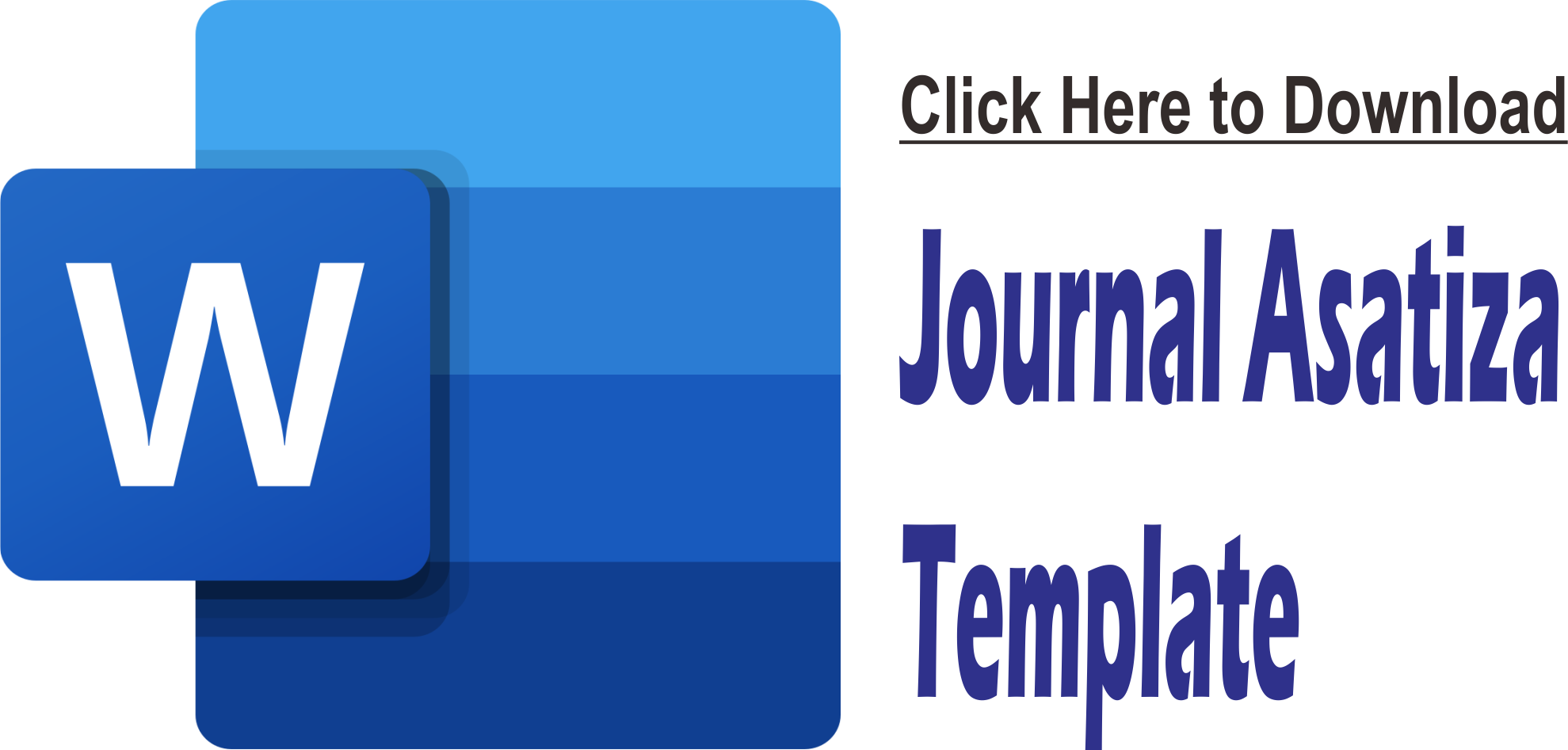Pemanfaatan Akses Aplikasi Belajar pada Proses Pembelajaran di Indonesia di Masa Pandemi Covid-19
DOI:
https://doi.org/10.46963/asatiza.v2i1.214Keywords:
Learning application, learning process, Covid-19Abstract
The Covid-19 pandemic that hit Indonesia has a very significant impact on education. The spread of that virus is not only in Indonesia but throughout the world, so many learning processes run down. Educational institutions have been closed due to concerns about the Covid-19 expansion. The spread of the virus is very fast, but learning must be carried out through an online process without a face-to-face meeting. However, the digital world made the safest way to break the chain of spreading the coronavirus outbreak because getting an education is students' right without neglecting their health and mental safety. Digital technology which greatly helps the teacher using the learning media throughout applications can facilitate the relationship between teachers and students in the learning process, even though many obstacles and adjustments were made than the previous face to face learning.
Downloads
References
Adisel, A., & Prananosa, A. (2020). Penggunaan teknologi informasi dan komunikasi dalam sistem manajemen pembelajaran pada masa pandemi Covid 19. Alignment:Journal of Administration and Educational Management, 3(1), 1-10. https://doi.org/https://doi.org/10.31539/alignment.v3i1.1291.
Astini, N. K. (2020). Pemanfaatan teknologi informasi dalam pembelajaran tingkat Sekolah Dasar pada masa pandemi Covid-19. LAMPUHYANG, 11(2), 13-25. https://doi.org/10.47730/jurnallampuhyang.v11i2.194.
https://eprints.uny.ac.id. (2020).(diakses tanggal 11 November 2020 pukul 21.45).
https://idcloudhost.com/mengenal-apa-itu-google-classroom-fitur-fungsi-dan-keunggulannya.(diakses tanggal 8 November 2020 Pukul 18.45).
Fajar, R. I. K. R., Hellyana, C. M., & Pratama, E. A. (2020). Aplikasi Bantu Belajar Grammar Bahasa Inggris Berbasis Android. IJNS - Indonesian Journal on Networking and Security, 9(2), 9-14. http://dx.doi.org/10.2311/ijns.v9i2.1624.
Maunah, B. (2009). Landasan Pendidikan. Yogyakarta: TERAS.
Mendikbud. (2020). Surat Edaran Nomor 3 Tahun 2020 pada Satuan Pendidikan. Jakarta: Mendikbud.
Rusli, M., & Nurahman, N. (2020). Aplikasi belajar bahasa Jepang berbasis android. Jurnal Penelitian Dosen FIKOM (UNDA), 8(1). http://jurnal.unda.ac.id/index.php/Jpdf/article/view/103.
Rustaman. (2001). Keterampilan bertanya dalam pembelajaran IPA.” dalam Handout Bahan Pelantikan Guru-Guru IPA SLTP Se-Kota Bandung di PPG IPA. Jakarta: Depdiknas.
Shandyastini, N. M., & Novianti, K. D. P. (2016). Analisisi E-Learning STMIK STIKOM Bali Menggunakan Technology Acceptance Model. Jurnal Teknoif Teknik Informatika Institut Teknologi Padang, 4(2), 1-6. http://dx.doi.org/10.21063%2Fjtif.2016.V4.2.
Sawitri, D. (2020). Penggunaan Google Meet untuk work from home di era pandemi coronavirus disease 2019 (covid-19). Prioritas: Jurnal Pengabdian Kepada Masyarakat, 2(01), 13-21. http://jurnal.harapan.ac.id/index.php/Prioritas/article/view/161.
Sukmadinata, N. S. (2007). Metode Penelitian Pendidikan. Jakarta: Remaja Rosdakarya.
Tjandra. (2020). Kasus Corona Terus Naik, Indonesia Belum Alami Gelombang Kedua COVID-19. https://www.liputan6.com/health/read/4407676/. (2020).(diakses tanggal 13 November 2020 Pukul 19.50).
Wekke, I. S., & Saleh, A. M. (2020, August 11). Pembelajaran di Masa Pandemi: Tidak Hanya Metode Daring Saja. OSF Preprints. https://doi.org/10.31219/osf.io/njtku.
Downloads
Published
Issue
Section
License
Authors who publish with this journal agree to the following terms:
1. Copyright on any article is retained by the author(s).
2. The author grants the journal, right of first publication with the work simultaneously licensed under a Creative Commons Attribution shareAlike 4.0 International License that allows others to share the work with an acknowledgment of the work’s authorship and initial publication in this journal.
3. Authors are able to enter into separate, additional contractual arrangements for the non-exclusive distribution of the journal’s published version of the work (e.g., post it to an institutional repository or publish it in a book), with an acknowledgment of its initial publication in this journal.
4. Authors are permitted and encouraged to post their work online (e.g., in institutional repositories or on their website) prior to and during the submission process, as it can lead to productive exchanges, as well as earlier and greater citation of published work.
5. The article and any associated published material is distributed under the Creative Commons Attribution-ShareAlike 4.0 International License











2.png)



